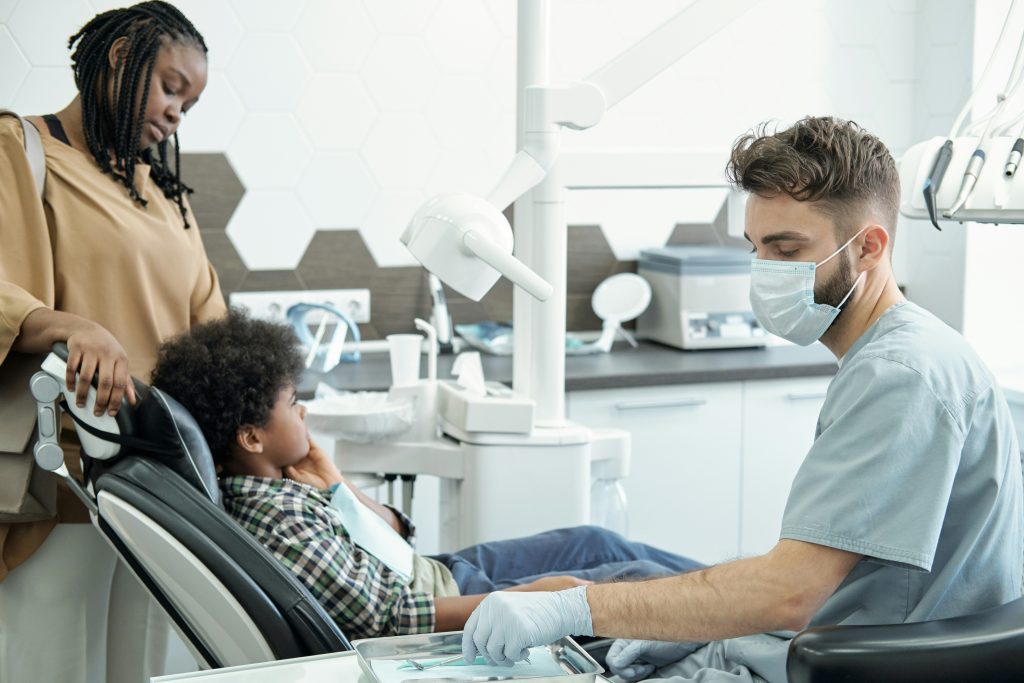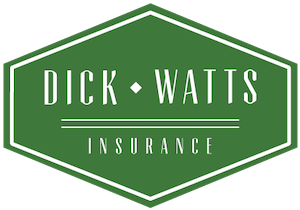The Dentist’s Guide to Business Interruption Insurance


In a small farm town in Kentucky , there was a dedicated dentist named Dr. Anderson who had been running a successful dental practice for many years. His clinic was well-known for providing quality oral care, and patients from the community relied on him for their dental needs.
One fateful day, an unforeseen event occurred that would change the course of Dr. Anderson’s professional life. One day there was a fire in the commercial building where the dental practice was located, causing widespread damage to businesses, homes, and infrastructure. Unfortunately, Dr. Anderson’s dental office was not spared from the devastation.
The fire and resulting smoke caused damage to the dental clinic, damaging expensive equipment, medical supplies, and the facility itself. Dr. Anderson faced the heartbreaking reality of having to temporarily close his beloved practice. The safety of his patients and staff was his top priority, but he also worried about the impact on the community’s oral health.
In the midst of this crisis, Dr. Anderson remembered that he had business interruption insurance for his dental practice. This insurance was designed to provide financial assistance in situations where a business had to close temporarily due to unforeseen circumstances. With a heavy heart, he reached out to his insurance provider to initiate the claim process.
The insurance company, understanding the gravity of the situation, expedited the assessment of Dr. Anderson’s claim. They worked closely with him to understand the extent of the damage, the financial losses incurred, and the projected timeline for the dental office to resume operations.
Thanks to the business interruption insurance, Dr. Anderson received financial support to cover ongoing expenses such as rent, utilities, and salaries for his staff during the closure. This assistance helped alleviate some of the financial strain caused by the unexpected closure of the dental practice.
During the downtime, Dr. Anderson took the opportunity to renovate and upgrade his dental office. He used the insurance funds to invest in state-of-the-art equipment and create a more modern and comfortable environment for his patients. The community rallied behind Dr. Anderson, eagerly anticipating the reopening of the dental clinic.
After several weeks of hard work and determination, Dr. Anderson’s dental practice was ready to welcome patients once again. The reopening was met with joy and gratitude from the community, and Dr. Anderson’s commitment to providing excellent oral care remained unwavering.
The story of Dr. Anderson highlighted the importance of business interruption insurance in helping businesses weather unexpected challenges. Despite facing adversity, the dentist and his community emerged stronger, demonstrating the resilience that can arise from a combination of determination, community support, and the right insurance coverage.
The Dentist’s Guide to Business Interruption Insurance in Louisville, KY and Jefferson County
Introduction:
In the world of insurance claims, Fires and other incidents often take the spotlight, especially in places like Louisville Kentucky. However, for dental practitioners in Louisville, KY, and Jefferson County, the risks may be different but equally impactful. In this guide, we explore the importance of business interruption insurance for dental offices, drawing insights from a recent incident faced by a dentist in Kentucky.
Understanding Business Interruption Insurance for Kentucky Dentists:
Business interruption insurance, also known as business income insurance, serves as a crucial lifeline for dental practices. Whether it’s a fire, theft, or any other covered event that forces a temporary closure, this insurance is designed to replace lost income and cover operating expenses during the shutdown.
Importance for Dental Offices:
For dental offices, business interruption insurance is not just a safety net; it’s a vital component of their risk mitigation plan. The coverage extends beyond physical damage, addressing the unique needs of dental practices, including the potential impact on patient care and revenue streams. Despite the additional costs, the benefits of covering operating expenses during a temporary closure far outweigh the expenses incurred.
Ensuring Continuity of Operations:
Collaborating with an experienced insurance professional involves developing a comprehensive continuity of operations plan. This includes identifying essential functions, establishing alternate facilities, and implementing effective communication strategies. Business interruption coverage, when integrated into this plan, becomes a proactive approach to minimize disruptions and ensure resilience in the face of adversity.
Understanding Policy Details:
Navigating the details of business interruption insurance policies may seem challenging, but working with a knowledgeable commercial insurance agent simplifies the process. Key components such as coverage duration, waiting periods, and common exclusions are crucial to grasp. Agents help in choosing an individual policy, considering under-insurance clauses, policy limits, and potential exclusions for comprehensive coverage.
Types of Coverage:
Business interruption insurance offers diverse coverage types, including business income, payroll, extra expenses, and contingent business interruption. Each type provides financial protection for different aspects of a business interruption, addressing lost income, ongoing expenses, temporary locations, and supplier disruptions.
What Does Business Interruption Insurance Cover?
If a covered loss forces your business to shut down, your interruption insurance can help cover your operating expenses, like:
- Revenue you’d normally make if your business was open.
- Mortgage, rent and lease payments for the space your business operates from.
- Loan payments that you need to make during that time.
- Taxes, whether you pay them monthly or quarterly.
- Payroll for your employees.
- Relocation costs if you have to move to a new or temporary location because of physical damages.
- Extra expenses if, for example, you need to rent another space to temporarily run your business after a covered loss.
- Training costs for employees to learn how to use new machinery or equipment after a covered loss.
Business Interruption Coverage Restoration Period
The restoration period of your business interruption coverage is the length of time where your policy will help pay for lost income. In most cases, there’s a 48 to 72 hour waiting period before your policy kicks in with income coverage. To see when your restoration period starts and ends, check your policy.
Key Elements of Coverage:
Dental office owners should ensure that their business interruption insurance covers essential elements such as temporary locations, equipment rental/replacement, employee payroll, extra expenses, debt payments, and taxes owed. Understanding these key elements ensures comprehensive protection against unforeseen disruptions.
Coverage Limit and Duration:
It’s crucial to understand the coverage limit and duration, considering sub-limits, exclusions, and potential reductions in effectiveness. The policy should cover expenses for preventing or minimizing losses, including provisions for additional expenses that may arise during relocation or shutdown.
Compensation for Ongoing Expenses:
Business interruption insurance should provide compensation for ongoing expenses like rent, utilities, insurance, and employee salaries during a disaster. Maintaining detailed records of these expenses facilitates a smoother claims process, ensuring faster financial support for the business.
Assessing Risk Factors:
Dental practices face specific risks during business interruptions, including lost revenue, employee turnover, and relocation expenses. Identifying potential risks and considering factors like practice size, number of employees, and services offered is critical in determining coverage needs.
How to Obtain Business Interruption Insurance:
Obtaining business interruption insurance involves working with an experienced commercial insurance agent who understands this optional coverage. Not having this insurance can put a significant financial strain on a dental practice in the event of unexpected closures. Collaborating with a specialized agency, such as Insurance For Dentists, ensures personalized coverage tailored to the unique needs of dental offices in Louisville, KY, and Jefferson County.
Conclusion:
For those in Louisville, KY, and Jefferson County, Kentucky the key takeaway is to ensure that your practice is protected against the unexpected. We also serve Oldham County, Shelbyville, LaGrange and Bullitt County . Business interruption insurance tailored for dentists provides the necessary safeguard, protecting your hard work from potential disasters.
